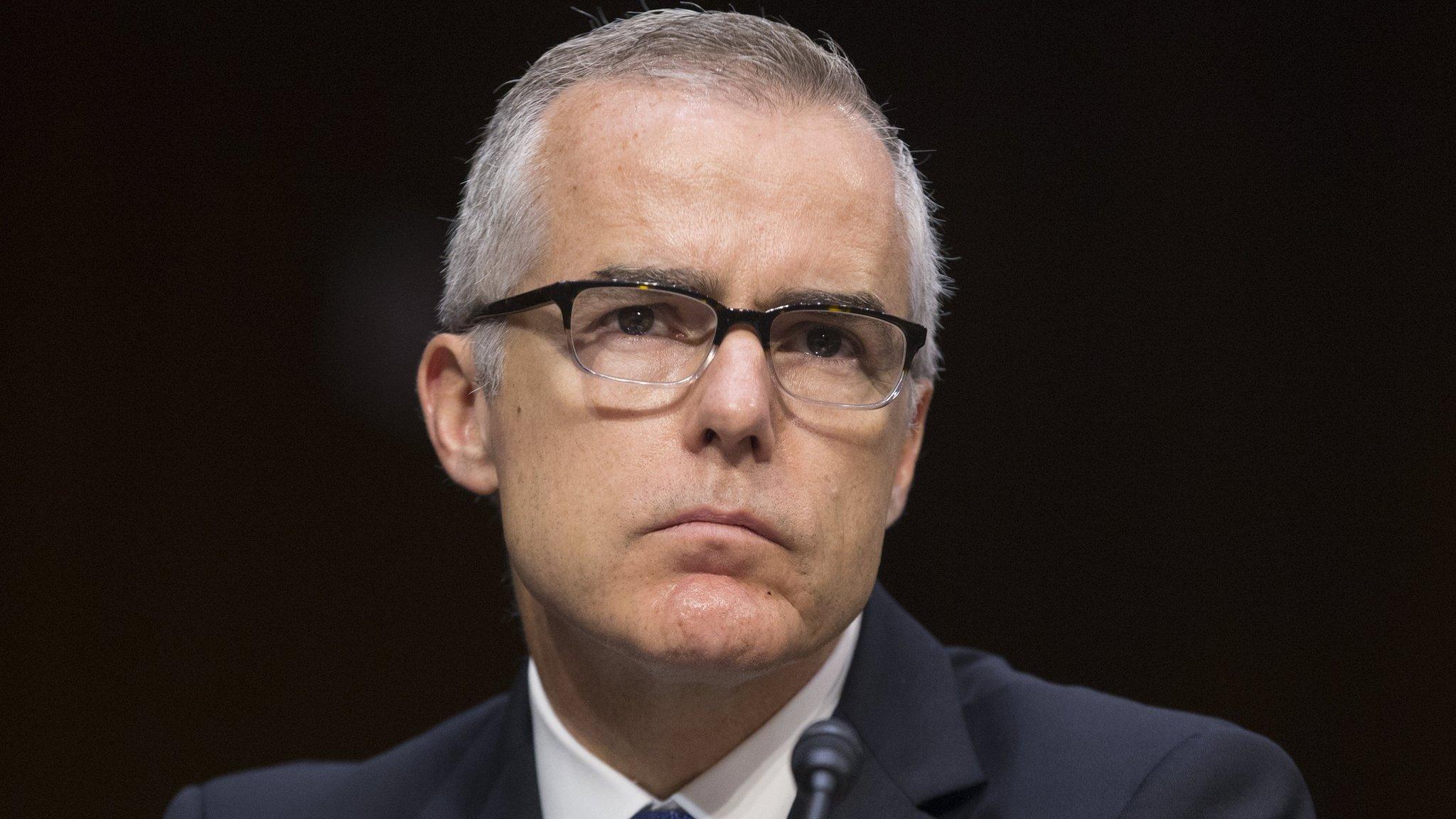FBI and White House clash over controversial Republican memo
- Published
All you need to know about the Trump-Russia investigation
The FBI has questioned moves to release a secret memo said to accuse it of abusing surveillance powers to target Donald Trump's presidential campaign.
"We have grave concerns about the material omissions of fact that fundamentally impact the memo's accuracy," the agency said.
There are suggestions the Congressional memo may be published on Thursday.
Democrats fear the document may be an attempt to discredit the inquiry into Trump campaign links to Russia.
Democratic Congressman Adam Schiff accused his Republican counterparts of altering the text of the document after it was voted on. He said it should be withdrawn and reviewed again prior to any possible public release.
Special Counsel Robert Mueller is leading the investigation into alleged Russian meddling and possible obstruction of justice by members of the Trump administration.
The White House has to approve the memo's release but its chief of staff, John Kelly, told Fox News Radio it would be "released here pretty quick" for the "whole world" to see.
What do we know about the memo's contents?
The four-page document was compiled by staffers for House Intelligence Committee (HIE) head Devin Nunes, a member of Mr Trump's Republican party.
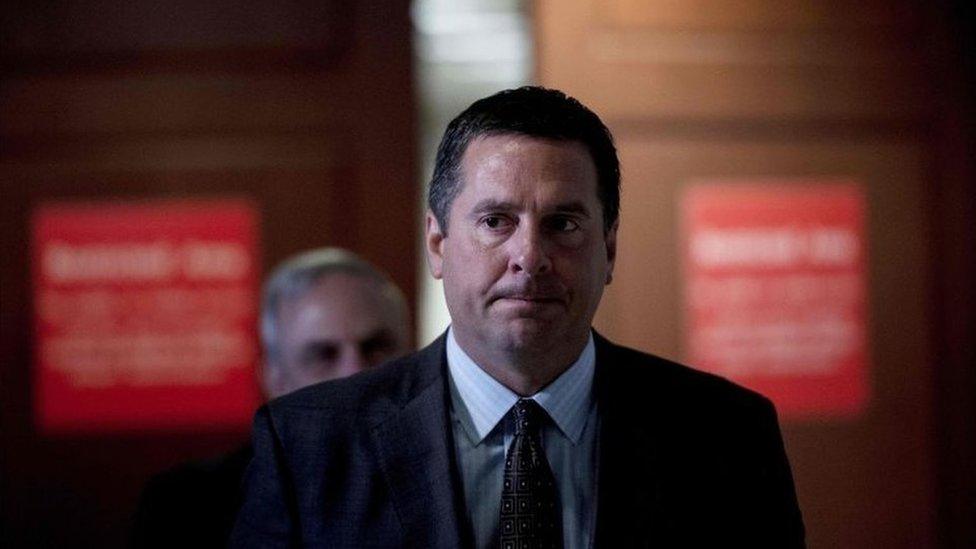
Staff of Republican Devin Nunes wrote the secret memo
It apparently accuses the Department of Justice (DoJ) and the FBI (Federal Bureau of Investigation) of abusing a surveillance programme known as the Foreign Intelligence Surveillance Act (Fisa) during the 2016 presidential election campaign.
The allegation is that the FBI ran surveillance on a member of Mr Trump's campaign.
According to lawmakers who saw the memo, it says the FBI obtained a warrant to spy on the campaign aide on the basis of unproven accusations against Mr Trump known as the "Russian dossier".
That dossier was compiled by former UK intelligence agent Christopher Steele with money financed in part from Hillary Clinton's campaign.
The HIE voted to release the memo on Monday and Mr Trump has until the weekend to decide whether to clear it for public release.
Following his State of the Union speech on Tuesday night, Mr Trump was heard telling a Republican lawmaker he was "100%" for releasing the document.
As of Wednesday however, he had still not read the memo, White House press secretary Sarah Sanders said.
Mr Kelly said Mr Trump wanted "everything out so the American people can make up their own minds and if there's people to be held accountable, then so be it".
What does the FBI say?
In a rare statement, the agency said it had had "limited opportunity" to review the document, external before the HIE voted to release it on Monday.
"We are committed to working with the appropriate oversight entities to ensure the continuing integrity of the Fisa process," the FBI statement added.
The US Department of Justice has said it would be "extraordinarily reckless" to release the memo.
How are relations between Mr Trump and the FBI?
Trump officials say the memo proves his allegation that he has been treated unfairly by the FBI.
Devin Nunes, who served on the Trump team during his White House transition, said it was "no surprise" the FBI had objected to the memo's release.
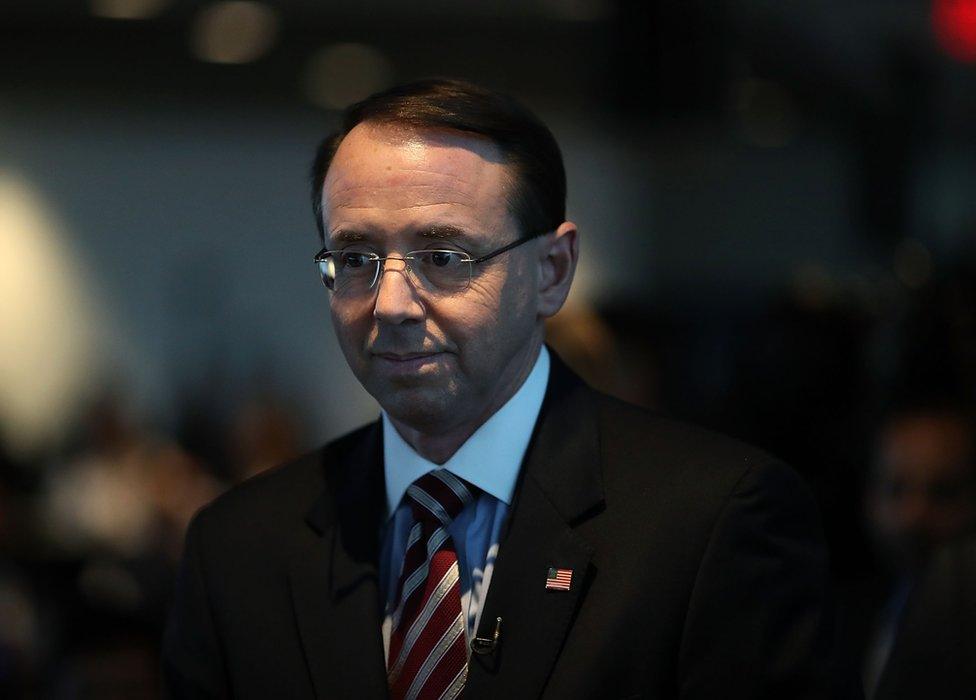
Mr Rosenstein appointed Robert Mueller to lead the Russia inquiry
"Having stonewalled Congress' demands for information for nearly a year, it's no surprise to see the FBI and DoJ issue spurious objections to allowing the American people to see information related to surveillance abuses at these agencies," he said.
After firing FBI director James Comey last year, Mr Trump reportedly asked his temporary replacement, Andrew McCabe, how he had voted in the 2016 presidential election.
Mr McCabe resigned last month as Mr Trump accused him of pro-Democratic bias. He had been planning to retire in March.
In December, Mr Trump reportedly challenged Deputy Attorney General Rod Rosenstein, who appointed Mr Mueller, over his loyalties.
He wanted to know whether Mr Rosenstein was "on my team", CNN reports. , external
What do Mr Trump's opponents say?
Democrats on the HIE accused Republicans of having secretly altered the memo before giving it to the White House.
Allow X content?
This article contains content provided by X. We ask for your permission before anything is loaded, as they may be using cookies and other technologies. You may want to read X’s cookie policy, external and privacy policy, external before accepting. To view this content choose ‘accept and continue’.
Mr Schiff said that releasing the memo increased "the risk of a constitutional crisis by setting the stage for subsequent actions by the White House to fire Mueller or, as now seems more likely, Deputy Attorney General Rod J Rosenstein".
Democratic Senator Dianne Feinstein, who serves on the Senate Intelligence committee, said the Republicans were clearly trying to "undermine the special counsel's investigation".
"There's no excuse for playing politics with highly classified information," she added.
A counter-memo drafted by Democrats was blocked by Republicans.
- Published30 January 2018
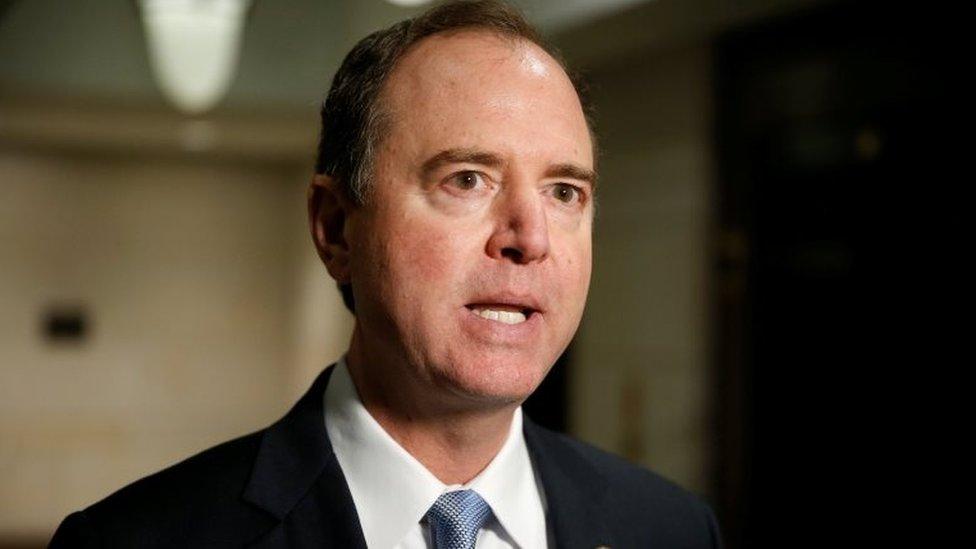
- Published8 January 2018
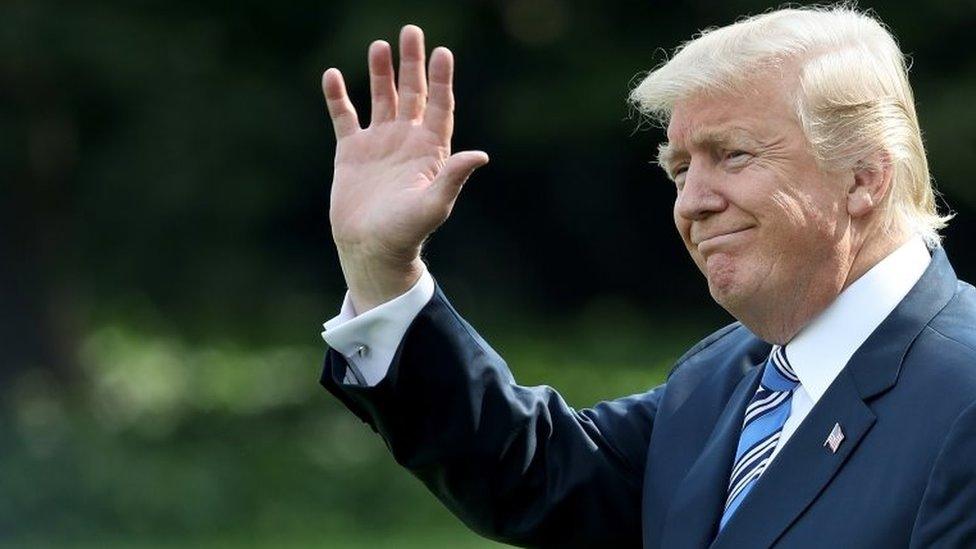
- Published2 February 2018
- Published30 January 2018
